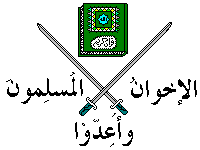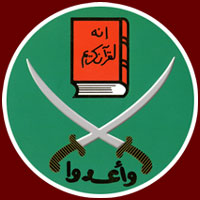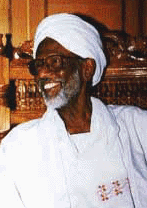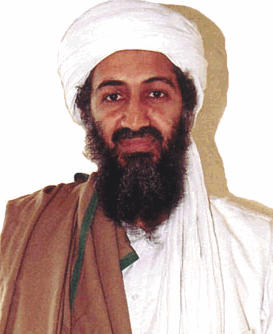|
Rotten Library > Conspiracy > Muslim Brotherhood
The Muslim Brotherhoodaka Jamiat al-Ikhwan al-MuslimunThe Muslim Brotherhood was founded in 1928 by a schoolteacher, with the goal of celebrating traditional Islamic family values. The Brotherhood is ostensibly like any other semi-political fraternal club: the Elks, the Moose, the Lions, the Rotary, the Masons. Except a lot more like the Masons than the Elks. And maybe a little more like al Qaeda than the Masons.The Muslim Brotherhood first formed in Egypt, where it has been mostly banned since its creation. The ban may have something to do with the fact that the Brotherhood has been tied to at least half a dozen attempts to assassinate whoever happened to be president of Egypt at the time.
In its early years, the Brotherhood focused on religious preaching, education and social programs. It was banned, then legalized again after the formation of Israel in 1948. Dissatisfied with Egyptian efforts against the "Zionist threat," the Brotherhood assassinated the prime minister of Egypt in late 1948, leading to the retributory killing of al-Banna in early 1949. After being banned again 1954 (due to an attempt to assassinate Egyptian President Gamal Abdal Nasser), the membership was dispersed into surrounding nations, including Jordan, Lebanon and Syria. As it spread throughout the Middle East, the Brotherhood became increasingly associated with acts of violence, assassination and terrorism. One of the Brotherhood's beefs with the Egyptian government was its support of the Soviet Union, which may have won the attention of the young Central Intelligence Agency. Rumors have swirled for years that the CIA may have supported the Brotherhood during the 1950s and 1960s. The allegations of an alliance have been widely reported, but not irrefutably documented. If true, the CIA has a lot to answer for.
While retaining its power base in Egypt despite the ban, the Brotherhood now took hold in several key Arab states, including Syria and the Sudan. In Syria, as in Egypt, the secular government battled the secret society. In Jordan, a constitutional monarchy, the regime struggled to control the group and a successor political party known as the Islamic Action Front, but the Brotherhood managed to gain control of a significant majority of the country's parliament. In the Sudan, the Brotherhood simply overran the government. The organization had opened an outpost in Sudan in its earliest days, where it ran student activist programs. Its effective infiltration of the higher education system bred a generation of educated Muslims who had been introduced to the Brotherhood's goal of Islamicizing the Sudan's government. After a military coup installed an Islamic government -- falling short of the Brotherhood's goal of implementing sha'ria law -- the Brotherhood's Hassan al-Turabi remained a constant power broker (though consistently falling in and out of favor with the regime).
In Egypt and the Sudan, the Brotherhood extended its reach and spun off terrorist groups including Jamaat al-Islamiyya, aka Gama'a al-Islamiyya (The Islamic Group), and Egyptian Islamic Jihad. Sudan's al-Turabi was a key networker for the Brotherhood, cultivating such friends as "the blind Sheikh" Omar Abdel Rahman and Ayman Al-Zawahiri, who then carried word to others. In 1981, the Brotherhood assassinated Anwar Sadat. Zawahiri and Rahman were both arrested, and Rahman eventually stood trial, accused of providing a fatwa to justify the killing. Rahman was acquitted. Zawahiri served time with hundreds of other alleged extremists who had been haphazardly rounded up and tortured by the Egyptian government. (Those who weren't radicals to start with had certainly been radicalized by the time they got out of prison.) Zawahiri went on to take control of Egyptian Islamic Jihad. Rahman eventually moved to New York City (after obtaining the CIA's help to get a visa), where he was linked to the World Trade Center bombing in February 1993 and the assassination of Rabbi Meir Kahane, before he was finally arrested and convicted for his role in a plot to destroy NYC landmarks. The breadcrumb trails of Zawahiri and Rahman lead to the same well-known destination, of course -- the most famous Muslim Brother of them all. In Saudi Arabia during the early 1970s, the thriving Brotherhood had reached out to the prodigal son of one of the kingdom's leading families. Osama bin Laden had been living the life of a dissolute Saudi prince, clubbing in Europe and consorting with loose women, when he was introduced to the Brotherhood's strict tenets and, in particular, the philosophies of Sayyid Qutb, a Muslim Brother who penned virulently anti-American texts after a trip to the States in the early 1950s. bin Laden went to fight (and fund others fighting) the Soviets in Afghanistan, with CIA support, in the early 1980s, as well as the Muslim Brothers running the anti-Soviet jihad, including Sheikh Abdullah Azzam.
Muslim Brothers bin Laden, Zawahiri and Rahman all played crucial roles in defining the ideology that fuels al Qaeda with a steady stream of recruits. Azzam provided the infrastructure, and al-Turabi later provided bin Laden with safe haven in the Sudan for several years. The public face of the Muslim Brotherhood today is still based in Egypt, where the organization continues to live and work despite being banned by the government. The Egyptian Brotherhood officially renounced violence in the 1970s. But the organization is believed to be structured to conceal its militant and jihad aspects. Most observers speculate, with some justification, that the Brotherhood still calls the shots for the militant "splinters" like Islamic Jihad and Hamas. The future likely holds a continued drive toward outward respectability for the Brotherhood's visible components. The clearest example of the problem can been seen in Egypt, the birthplace of the organization. The 2005 elections in Egypt highlighted a major problem with the U.S. commitment to democratize the Middle East: When given the opportunity, voters tend to like Islamic fundamentalists. Egyptian President Hosni Mubarek, a secular ally of the U.S., unleashed the dogs on voters during the winter 2005 parliamentary elections. Despite arresting hundreds of of the group's sympathizers and even killing a few here and there, voters turned out in unprecedented hoards to support Muslim Brotherhood candidates. The Brotherhood is now the leading opposition party in Egypt, and it wields significant political clout all over the region, most notably in Syria, Kuwait, Jordan and the Palestinian territories. The Brotherhood celebrated its victory by kicking off a fresh round of Holocaust denial among leading Arab intellectuals, somehow managing to re-open the world's dumbest argument about whether or not Hitler attempted genocide against the Jews. (He did.) Sadly, despite this sort of rhetoric, pressure is only growing to include the Brotherhood in the political process. The group is still considered "moderate" relative to those Islamists who advocate killing every Jew in Jerusalem without any regard for the possible consequences. It's not that they don't want to kill the Jews, mind you, it's just that they've thought about the consequences. If you think about it, it's a pretty brilliant strategy: Create terrorist groups that use violence to advance your goals, distance yourself from those groups, present yourself as the "reasonable" alternative, and enjoy the accolades of the very people you're trying to destroy. Not bad for day's work. Or even several decades.
|
 Hassan al-Banna, the teacher who founded the group, was a Wahabbi Sunni Muslim. Wahabbism is an extremely strict form of Islam, not dissimilar to the brand pushed by the Taliban.
Hassan al-Banna, the teacher who founded the group, was a Wahabbi Sunni Muslim. Wahabbism is an extremely strict form of Islam, not dissimilar to the brand pushed by the Taliban.  After being ejected from Egypt, the Brotherhood and thousands of Wahabbi adherents fled to
After being ejected from Egypt, the Brotherhood and thousands of Wahabbi adherents fled to  By the late 1970s, the Brotherhood had firmly established itself as a leading power broker in Saudi Arabia, Egypt, Jordan and the Sudan, while playing important roles in Syria, Iraq, Iran and Palestinian territories (where it reconfigured as the terrorist group
By the late 1970s, the Brotherhood had firmly established itself as a leading power broker in Saudi Arabia, Egypt, Jordan and the Sudan, while playing important roles in Syria, Iraq, Iran and Palestinian territories (where it reconfigured as the terrorist group  Azzam set up the Services Office, a CIA- and Saudi-sponsored support organization for the mujahideen, providing a network infrastructure based in Peshawar, Pakistan, that would later form the basis for
Azzam set up the Services Office, a CIA- and Saudi-sponsored support organization for the mujahideen, providing a network infrastructure based in Peshawar, Pakistan, that would later form the basis for